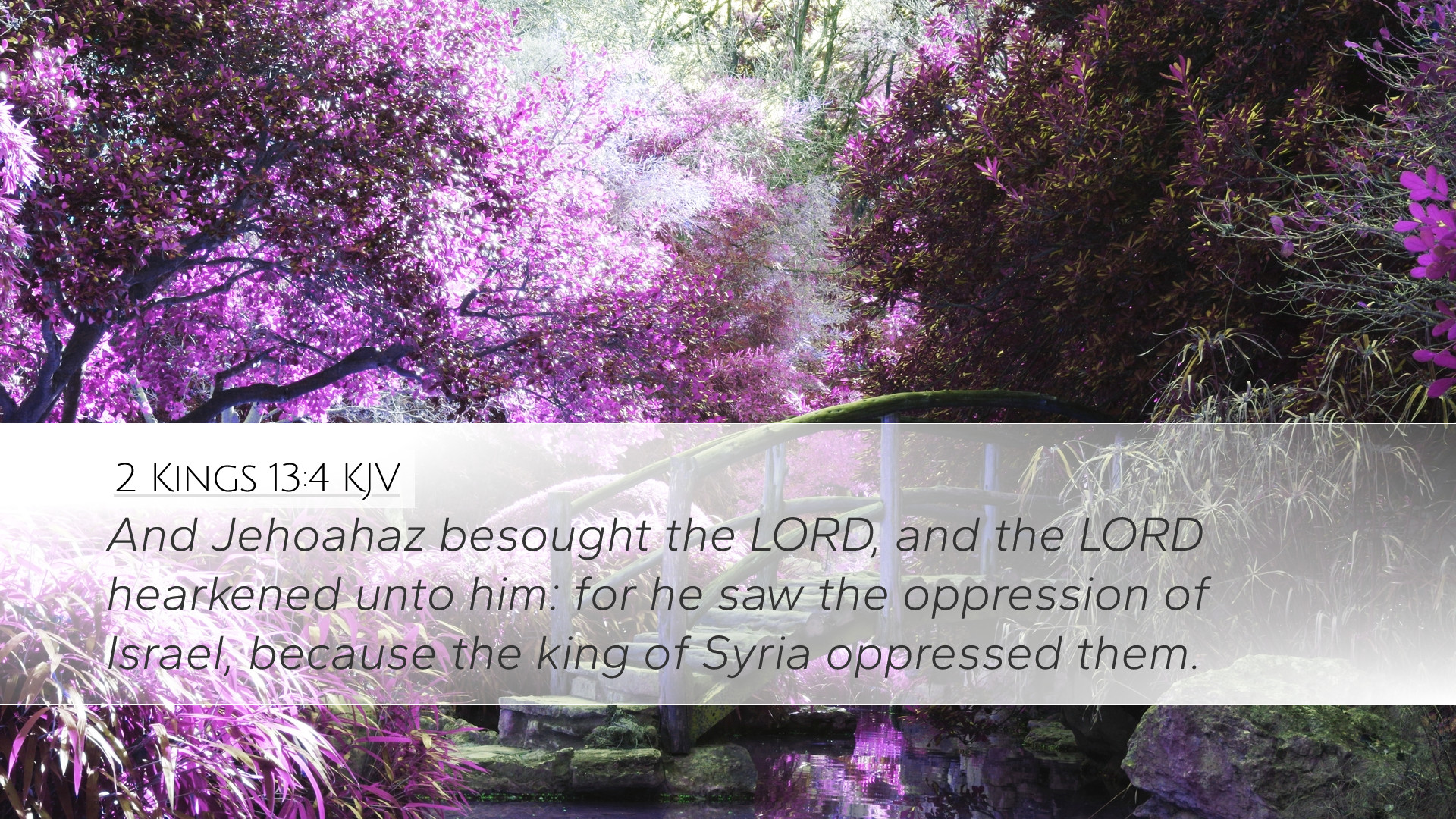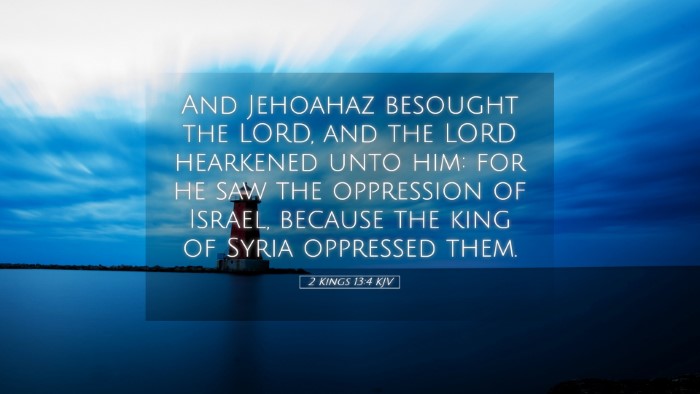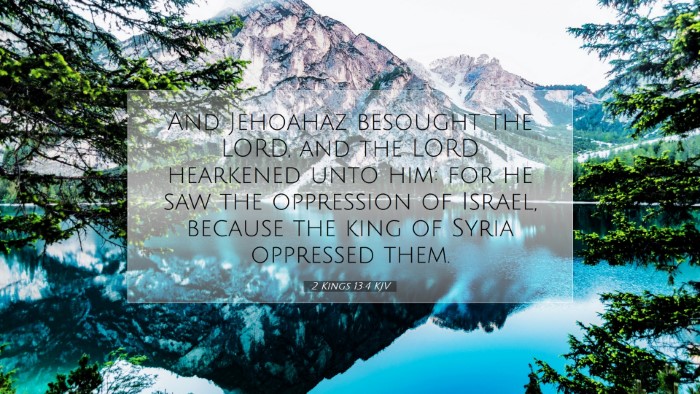Commentary on 2 Kings 13:4
2 Kings 13:4 states, "And Jehoahaz besought the LORD, and the LORD hearkened unto him: for he saw the oppression of Israel, because the king of Syria oppressed them." This verse serves as a pivotal moment in understanding God's response to human suffering and the dynamics of leadership in Israel during times of distress.
Introduction
Within the narrative of 2 Kings, the historical backdrop is crucial to comprehending the significance of Jehoahaz's plea. Israel's spiritual and political crises are recurring themes, and this verse shows how God responds to the cries of His people.
The Context of Jehoahaz
Jehoahaz was the son of Jehu and ascended to the throne during a period of significant decline and oppression. According to Matthew Henry, Jehoahaz’s reign was marked by infidelity to God and a recalcitrant populace, yet in this moment of despair, he demonstrates an essential quality of leadership: the ability to recognize the need for divine intervention.
Recognition of Need
Jehoahaz "besought the LORD," a phrase that echoes the cry of desperation from leaders who are aware of their limitations. Albert Barnes emphasizes that in the midst of Israel's defeat, Jehoahaz acknowledges the futility of relying solely on military might, reflecting a profound need for spiritual rejuvenation.
The LORD’s Compassion
The response of the Lord, "and the LORD hearkened unto him," is a theme prevalent throughout the Scriptures. Adam Clarke points out that this is indicative of God’s nature—willing to listen and respond to the pleas of His people. It highlights God's faithfulness, even when the people drift from their covenant obligations.
Divine Intervention and Mercy
The statement, "for he saw the oppression of Israel," speaks volumes about God's active engagement with His creation. He is not a distant deity; rather, He is intimately aware of the struggles His people face, as reiterated by Matthew Henry. God's compassion towards Israel amidst their suffering illustrates His covenantal faithfulness and the depth of His mercy.
The Nature of Oppression
The oppressive hand of Syria was a direct consequence of Israel's departure from God's commandments. Albert Barnes reminds us that oppression often serves as a disciplinary measure from God—drawing His people back to reliance on His strength rather than their own. The suffering experienced by Israel was meant to lead them to repentance and a restoration of their commitment to God.
The Role of Prayer in Crisis
Jehoahaz’ prayer is significant because it not only reflects humility but also a recognition of God's sovereignty. Adam Clarke notes that true leadership in times of crisis should involve seeking God earnestly—a theme echoed throughout the Psalms as well. The king’s supplication serves as a model for leaders in any capacity, showing that reliance on God in times of trouble is paramount.
Implications for Modern Believers
For pastors, students, and theologians studying this passage, there are profound implications. As leaders and caretakers of spiritual welfare, acknowledging human limitations and calling upon divine power is crucial in addressing the spiritual and societal challenges of today.
Conclusion
In summary, 2 Kings 13:4 encapsulates the essence of God's relationship with His people amidst oppression. Jehoahaz's recognition of his need for God and God's compassionate response offer a timeless lesson on leadership, the power of prayer, and the faithfulness of God despite human failure.
Reflections
- Seeking God in Distress: When faced with difficulties, it is crucial to turn to God in prayer and supplication.
- The Nature of Leadership: True leaders recognize the need for divine assistance, especially in dire situations.
- God’s Mercy: God is attentive and responsive to the cries of His people, highlighting His unchanging character.


